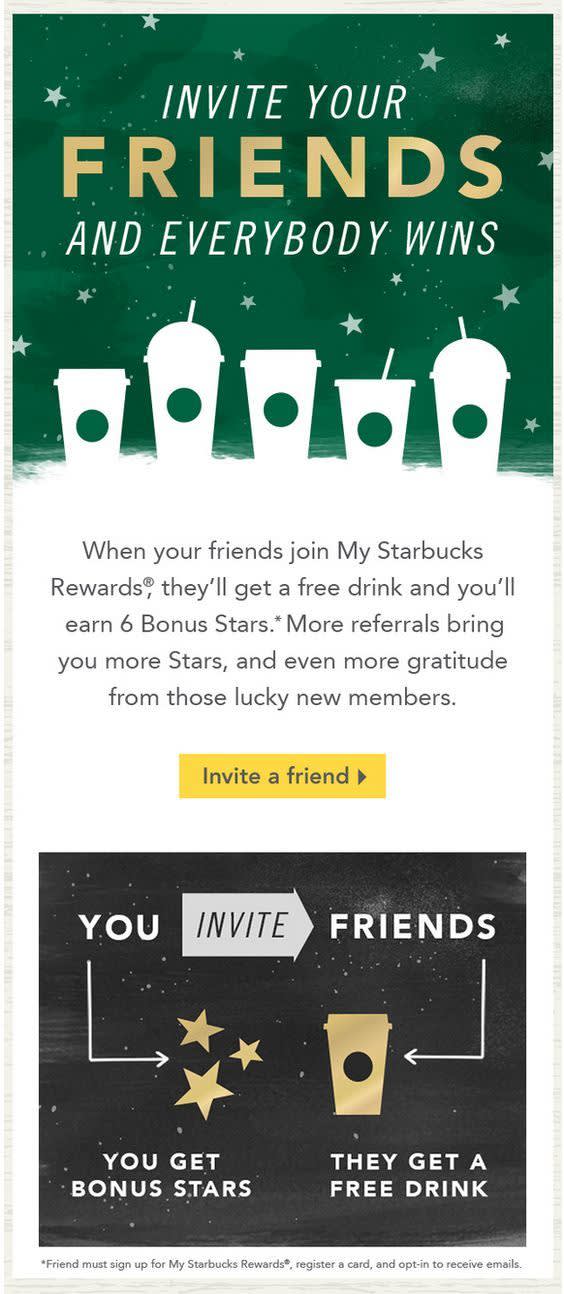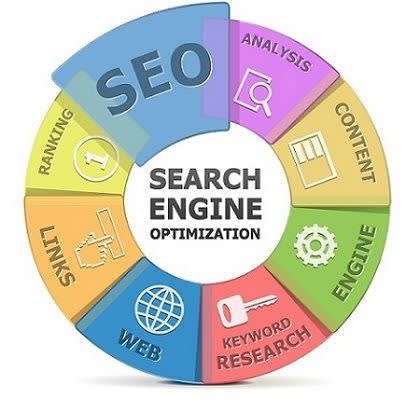
Did you know that Google is responsible for 8.5 billion searches every day? Or that Bing, another popular search engine, has 900 million daily searches? Or that DuckDuckGo, Google’s cousin, has 98.79 million searches every day?
Why does this matter? While digital marketing is only one form of marketing, it’s a powerful one. So, let’s learn how to plan a campaign that racks up your views, ratings, and sales like never before.
In this piece, we’ll cover:
Let’s do the thing.
What is a marketing campaign?

Photo Cred: Behance
As early as eight years young, kids learn about the intent and impact of marketing in school. It’s conditioned in society for everyone to know why advertising exists: to promote products, educate, and grow brand familiarity.
Soon before long, kids develop style and product preferences. They rep Nike muscle shirts, Asics sneakers, Limited Too glitter hats (no shame), and Juicy zip-ups.
The point is that everyone has been impacted by marketing at some point in their lives, which essentially means that it’s 100% effective. Since marketing is happening all the time, let’s map out what differentiates a generic ad from a marketing campaign.
A marketing campaign is a series of ads designed to promote products, services, brands, or thematic messaging through consistent communication. They’re most commonly communicated through the following platforms:
Television
Social media platforms
Direct mail
Radio
Print
Email
Websites
Sure, digital marketing methods only make up half this list, but they’re more effective than other strategies due to our device dependency.
Still, you might think that due to our round-the-clock screen time, we’d be desensitized to online marketing. The truth is that everyone’s subconsciously impacted by ads whether we know it or not.
This can only mean one thing: businesses must learn how to compete to be successful. Knowing how to plan a campaign is the only way. Don’t worry – we’ve equipped you with various types of marketing campaigns that will surely take you to the top. Check ‘em out!
Types of marketing campaigns

Photo Cred: Wanzhen Cen
Just like political marketing campaigns, no campaign is successful without a plan. Plans require objectives. Common objectives of marketing campaigns are as follows:
Launching a new product or service
Customer acquisition and retention
Increase in sales
Consumer education
What makes campaigns different than a random slew of marketing ads is a clear start-to-finish timeline. Consider it a marketing intensive. To achieve your goals, list what they are and determine how to include the following diverse campaign ideas.
1. Product campaigns

Photo Cred: Bec Simpson
Product marketing announces new and popular picks to the masses. Own a retail biz or clothing line with new products to share? If you have multiple new offerings, use a collage format to highlight ‘em all!
Pro Tip: Successful digital marketing is equally about how you market as it is when you do. Ask yourself "What time of the day, week, month, and year would people best resonate with your product?"
2. Holiday campaigns

Photo Cred: Freepik
Get festive with holiday-related and seasonal marketing ads! Don’t wait for Black Friday to offer your hottest deals. Show your customers that you have generous discounts for every occasion and that there’s always something to celebrate. And what better time to spread the love than on Valentine’s Day?
Pro Tip: For lasting impressions, coordinate relevant color palettes with the holiday or season and make your ads pop – like this one – with stand-out geometric designs!
3. Referral campaigns

Photo Cred: MailBakery
Oh, the good ole refer-a-friend campaign. This marketing strategy is inclusive and effective. Incentivizing both parties with a win-win situation is a smart way to acquire more customers.
If you have a rewards system or want to build one, referral programs are a great way to maximize exposure.
While this ad is simply for a drink, why not apply this concept to an experience? Bring a friend to your next pottery class or healing session and get 25% off!
4. Video campaigns

Photo Cred: Caitlin Bacher
Since 65% of the population are visual learners and 30% are auditory, why not combine the two with an engaging yet informational video? In the land of YouTube, TikTok, Instagram, Snapchat, and endless other vid-friendly platforms, not using video campaigns can work against you.
Be mindful about which platform you choose. To compete with other vid connoisseurs (even if you aren’t one!), polish your content with proper video editing, effects, background music, and other slick tactics to keep folks invested. Consider making a video collage to animate aspects of your content in short, easy-to-follow snippets.
5. Brand awareness campaigns

Photo Cred: Olga Law
Internationally known brands are recognizable anywhere. Of course, you’ll need to develop notoriety before attaining this level of recognition, but Nike’s a great model. So long as their infamous check-mark logo and “Just Do It” slogan are plastered on an ad, everyone will know its purpose.
To build this level of recognition, seek out ways to place your logo and/or slogan everywhere. Consider them for the following places:
Stationery
Formal documents
Successful campaigns are not solely about the campaign itself. The more consistent your everyday marketing methods are, the more likely you are to achieve brand recognition.
6. Awareness campaigns

Photo Cred: Barb Dub
Different from brand awareness campaigns, awareness campaigns provide information about a cause or mission. Everyone’s familiar with the long-standing anti-tobacco campaign ads heard on TV.
You may also use these ads for fundraising events, educational panels, or forums. Common ads for awareness campaigns may include mental health, the environment, physical health, or addiction. Nonprofits are perfect candidates for the campaign, as well as charitable organizations that donate portions of their proceeds elsewhere.
Awareness campaigns hold three main objectives:
Education about products and organizations
Incentives to support the cause or business
Inspiration to influence behavioral change
Companies that invite you into a greater mission make it easy to support them with your dollars.
7. Content marketing campaigns

Photo Cred: Blogtips
While you might think all marketing is content marketing, these campaigns focus specifically on relevant and widely searched info. Bloggers and influencers are perfect examples of content marketing, but any field that requires information or education should utilize this method.
Whether you work in academia, science, medicine, fitness, or travel, content marketing lets you spread info to the masses. Anything you’d consider clickbait is a form of content marketing, so see how you can make the next best article on the internet!
8. Direct mail campaigns

Photo Cred: LS Creative
While we’ve emphasized the effectiveness of digital marketing, we can’t rule out the long-standing direct mail method. The truth is you’ll want to optimize as many campaign strategies as you can, so whether that means goin’ old-school or new-school, there’s a time and place for both.
Whether you canvass door-to-door or do formal send-outs, the more the merrier. Mail is personal. It helps customers feel closer to your brand and company. Consistency and repetition also impact the mind so that you’re number one when they’re lookin’ for your services!
9. Facebook ad campaigns

Photo Cred: Klientboost.com
Facebook currently has 1.9 billion active daily users and 2.9 billion monthly users. Facebook ads are prime-time to maximize your market. Facebook offers options for slideshow ads, image ads, story ads, messenger ads, and more!
Since Facebook ads have limited space and aren't conducive to content marketing, it’s a great option to highlight a multitude of products.
10. Instagram ad campaigns

Photo Cred: IFTTT
We haven’t forgotten you, Instagram! Truthfully, most folks who have Facebook have Instagram – esp because FB bought Insta in 2012 – but that doesn’t mean one size fits all for ads. Each platform has different ad structures, so utilize Instagram’s ad options like Carousel, video, and collection ads to sport your trendiest products.
11. Sales campaigns

Photo Cred: Designmodo
If nothing else, knowing how to plan a campaign wisely means knowing when to offer sales and discounts. Not only do sales campaigns do this, but the sale is the campaign. Simply, sales campaigns aren’t the place to market content or even your brand, exactly. They’re the simplest, clearest way to sell your sale!
As shown above, feel free to implement funky graphics, bold colors, and distinguished fonts to create an impression for your customers. Draw them in with a sale first, let them learn about you later!
12. Email marketing campaigns

Photo Cred: Icons8
Among the 4.2 billion email users that exist on this planet, it’s safe to assume email matters in marketing. Create an email ad that’s easy for users to open without having them question who you are or why you’re in their inbox.
The goal is always for customers to feel positivity from your reaching out. The best way to combat resistance is by being genuine, interesting, and important.
A great first step is rewarding new and long-standing customers for their loyalty with a discount. Every offering should create a sense of value and urgency, but you can still be friendly in doing so. People can sense immediately if your intentions are pure.
13. SEO campaigns

Photo Cred: G Web Pro Marketing Inc
SEO, or search engine optimization, is a critical component to effective marketing campaigns. SEO helps acquire and drive traffic to all channels of business by way of targeted keywords.
These strategically chosen keywords should be placed in your social media ads and content-driven pieces so that when customers search for “Organic skincare products” or “Make more money,” your business pops up first in Google.
Beyond making ads look good and launching them at strategic times, optimize your content with SEO to ensure more exposure for your business.
How to plan a campaign that rocks

Photo Cred: MailBakery
Now that you know how to plan a campaign with various marketing methods, there are a few things left to cover. While the two main ingredients for a successful marketing campaign remain consistency and repetition, you won’t get very far without quality work.
Colors & fonts
Knowing how to plan a campaign is similar to telling a story. You want cohesion and distinguished themes throughout. Utilize intentional fonts and colors in a way that’s enticing to customers yet still recognizable to your brand.
You can toy with color gradients, curved text, or textured effects for optimal engagement.
Graphics & backgrounds
Decide which aspect of your company each ad will highlight. Then, create significance with symbols and graphics to support your text or dynamic background designs to draw folks in.
Creative content
Besides implementing SEO-driven content, it’s imperative to draw in customers with creative, fresh, and well-written ideas. Since ads have limited space, be intentional with your text by considering the following strategies:
Alliterative phrases
Puns
Rhyming
Trending lingo
Keeping yourself current by targeting your demographic’s language creates innate value.
Company info
Once you nail your stylistic choices down, be sure to include information that will make it easy for customers to recognize you. That might include:
Company name
Reason for reaching out
Applicable sales, discounts, promos, or announcements
Incentives
Expiration dates, if applicable
Website to redeem offers
Other optional information might include:
Store location
Hours of operation
Phone number
Befriend the timetable
While your timetable will become your new BFF, know that there are always curveballs, so don’t beat yourself up if it doesn’t end up being 100% exact. And while you don’t have to reveal your intended timetable to your audience, you can if you think it will help keep folks engaged in a limited-time-only kinda way. Transparency is a magnetic trait for customers.
Strategic planning will also help you differentiate each post with fresh & new content. Timelines help avoid redundancy or customer confusion. In a telemarketing, robo-calling, my-inbox-is-over-flowing world, the last thing you want is for folks to write you off. Your three enemies? Spam, junk, and trash.
Celebrate!
Whew! Now we know for sure you have everything you need to become a kick-butt marketing mastermind. Remember, knowing how to plan a campaign is the first and most important step.
Use this planning stage as your dreaming stage. Manifest the reality you desire by listing your desires, goals, and hopes for this process. Celebrate each milestone as you go and take pride in what you’re building.
Everything in business is a learning process. So long as you stay curious, you’ll remain forever grateful. We believe in you! Now go crush it.
